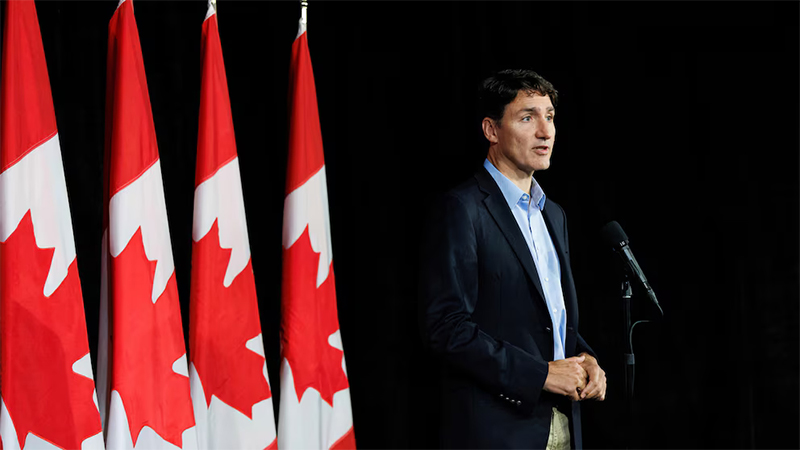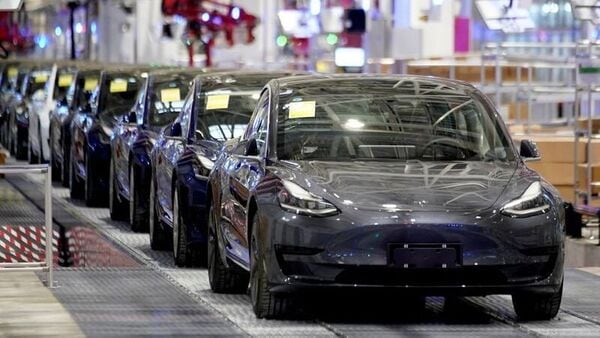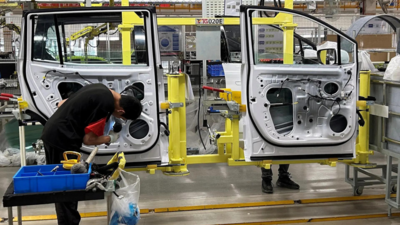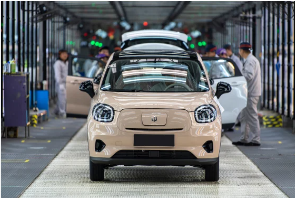TORONTO: Canada said on Monday that it will begin levying a 100% duty on electric car imports from China, matching US levies levied over what Western nations claim are improper subsidies from China that give its sector a competitive edge.
After encouraging the news, U.S. National Security Advisor Jake Sullivan met with Cabinet officials and Canadian Prime Minister Justin Trudeau on Sunday. On Tuesday, Sullivan will travel to Beijing for the first time.

According to Trudeau, Canada will levy a 25% tax on steel and aluminum imports from China. He declared, “Actors such as China have deliberately chosen to give themselves an unfair advantage in the global marketplace.”
China failed to respond right away. Tesla is one of the Chinese-made electric vehicles (EVs) that are imported into Canada; however, the American corporation might circumvent the levy by supplying Canada from plants located in Germany or the United States. Tesla manufactures its EVs in Shanghai.
In Canada, Chinese brands are still relatively unknown. But the massive Chinese electric vehicle manufacturer BYD formed a Canadian corporation this spring and has stated that it plans to attempt to join the Canadian market as soon as next year.
While Beijing works to revive its economy following the Covid-19 outbreak, Chinese officials are probably going to bring up concerns on the American tariffs with Sullivan. Major new tariffs levied by President Joe Biden in May targeted Chinese electric cars, solar cells, sophisticated batteries, steel, aluminum, and medical equipment.
Sullivan told reporters on Sunday, “The U.S. does believe that a united front, a coordinated approach on these issues benefits all of us.”

According to Biden, Chinese government subsidies for electric vehicles (EVs) and other consumer items guarantee that Chinese businesses don’t have to make a profit, providing them an unfair competitive edge in international commerce.
EVs may be sold by Chinese companies for as cheap as $12,000. China has enough steel and aluminum mills and solar cell facilities to provide most of the global demand. Chinese officials contend that their manufacturing helps facilitate the shift to a green economy and keeps prices low.
Regarding the new tariffs, Trudeau remarked, “We’re doing it in alignment, in parallel, with other economies around the world that recognize that this is a challenge that we are all facing.” “We must get up unless we all want to end up in a race to the bottom.”
Chrystia Freeland, Canada’s deputy prime minister, announced that the country will also begin a 30-day consultation period over potential duties on Chinese semiconductors, solar panels, essential minerals, metals, batteries, and battery parts.
“China has a deliberate, state-directed policy of overproduction and overcapacity, which is intended to destroy our own industry,” Freeland declared. “We just cannot allow our EV sector, which has shown such promise, to suffer that way.”
Considering our economic connection with the United States, Canada “had to go with the U.S. position.” According to Guy Saint-Jacques, a former Canadian ambassador to China, “more than 75% of our exports go to the U.S.”
Saint-Jacques stated that China is likely to retaliate against Canada in other areas, mentioning that barley and pork are potential targets due to their accessibility to Chinese markets.






